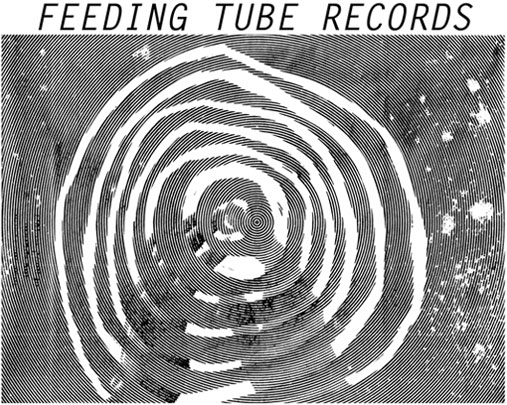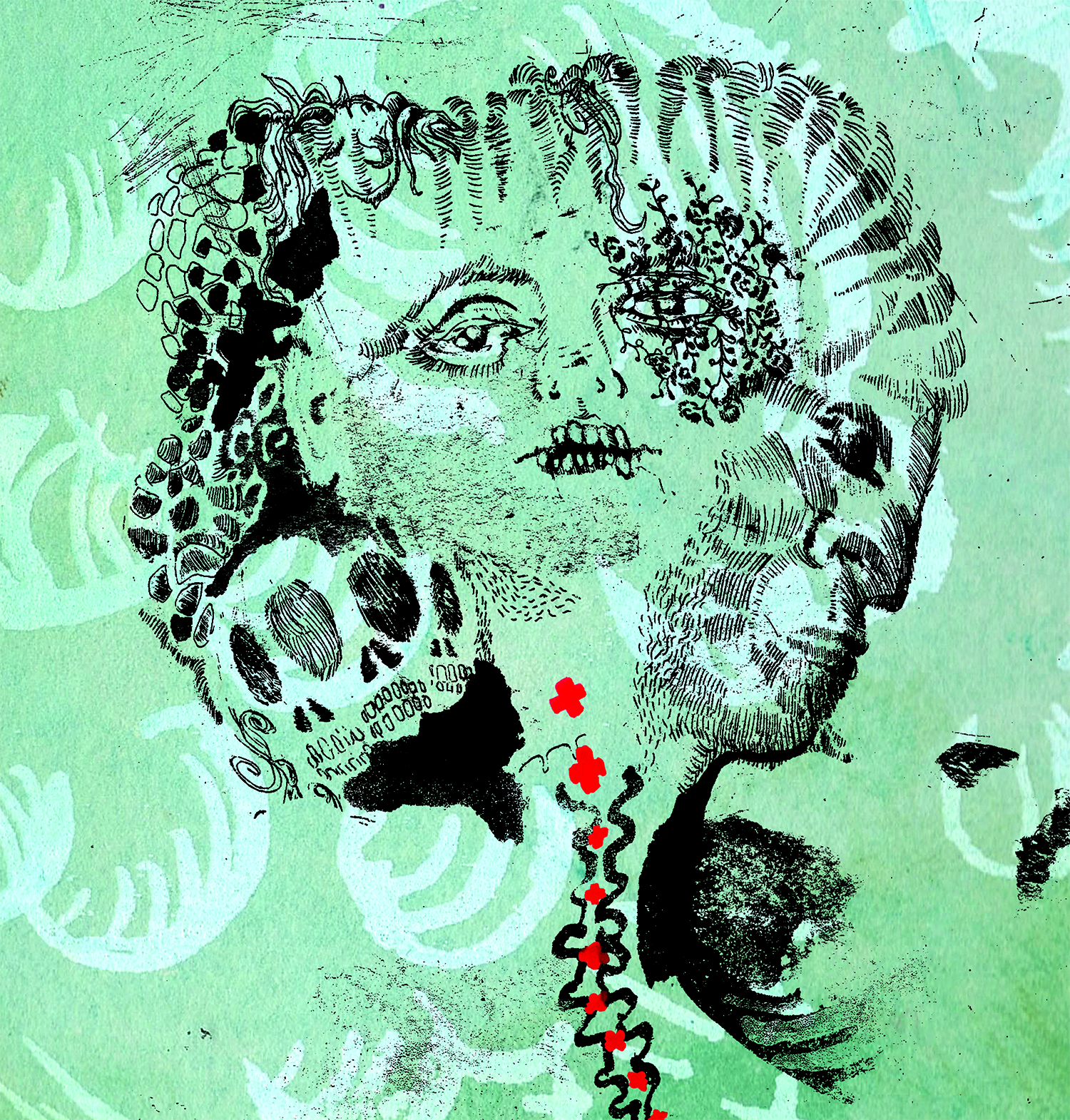LP Edition of 1000. Co-Release with Ba Da Bing Records.
OUT OF PRINT
The Deluxe Edition of First Aid Kit includes screenprinted wrap-around LP artwork, a lathe of featuring an exclusive new song (“Spinning In The Wind”) & a Devo cover (“Gates of Steel”), and a postcard print of Girlsworld #5 by Colleen Kinsella. Edition of 50.
OUT OF STOCK
Feeding Tube in collaboration with Ba Da Bing present :
“She can be a real pain in the ass,” is how Big Blood’s Caleb Mulkerin and Colleen Kinsella describe having their daughter as a member of the band they formed in the wake of Cerberus Shoal’s dissolution. A band made up of family seems like an ideal situation. You get to play with those you love, and practicing/recording is always just a matter of going into the next room. “If you don’t have kids, I can imagine that is an obvious assumption,” Caleb says. “However, if you do have children, I don’t need to explain how much of an emotional mess this can be.” Parents don’t stop being parents, nor do kids stop being kids for band practice. “There are endless amounts of broader ‘life’ examples brought up at any given time while playing with Quinnisa, and I can’t help stopping to discuss them as they come up,” he says. He understands Quinnisa’s position. “She’s rightly annoyed at being parented in a ‘judgment free’ zone. Lots of practices end with her being tossed from the band.”
His issues are nothing, however, to what she brings to the band. Quinnissa, who was 13 when First Aid Kit was recorded has skills. “She’s a total ringer and a complete pro in a live setting,” Mulkerin acknowldges. “She’s a lot more reliable than her grumpy parents.” Indeed, Quinnisa’s voice has developed into an astonishing powerhouse of force. While she has been contributing to Big Blood records almost since birth, First Aid Kit solidifies her clear talent. All her lyrics are improvised in the moment while recording, a real shock to realize considering how insightful and perfectly suited to the song they are. “Never Ending Nightmare” candidly and perfectly describes the anxieties of being a teenager today: “The quiet growing inside me is louder/I should have known not to trust another stranger.” Or the heartache of “1000 Times”: “I think about you at least 1000 times a day/I can’t even say hi/What’s wrong, what’s wrong, what’s wrong with me?” What more, her natural ability to perform amazes her parents. “She’ll be slopping around all practice, and you are convinced she doesn’t have it,” Kinsella says. “Then we record and she nails the guitar and vocals, even does something better. She’s in control.”
Teenage impulses fit right in with the band’s intent, which is making music that’s honest, inclusive and flawed. Inventiveness in the moment wins out over belabored, repeated takes, as the group is in a constant state of creation. Songs sound fully built and realized, but they actually rise out of improvisation. Big Blood channel the moment and let go once they finish. “I think about Ursula Le Guinn and how she talks about everything she takes in becoming compost,” Kinsella says. “It mixes together, and when it comes out there’s all that stuff in it, sometimes it’s direct and sometimes not.” Mulkerin’s descriptions of different songs on the record run like faint recalled dreams. “I don’t remember much other than it flowed from the three of us absurdly quick,” he says of opener “In My Head”. “Haunted” has intriguing lyrics like “I’m haunted by your pictures/That faded like a memory” but, as Mulkerin says, “Colleen is not one to try for things in any sort of premeditated way, it just flows and evolves.” Many songs touch on the fear and horrors outside a safe home space, fitting for a record made during COVID. They sing about their feelings in the moment, so lyrics are often topical. “Makes Me Wonder” is about Ma’kihia Bryant, a 16 year-old black girl shot by police (“Be still the mess you make/The life you squeeze, you take,” and later in the song…”She should be alive today.”)
While any fan of the band will tell you that no two albums sound very much alike, First Aid Kit displaying for the first time their affinity for the emotional effects of bands like The Cure, Bauhaus and The Clean, there’s a clear thread throughout all their records. First, there’s Kinsella’s voice, which pivots from upbeat fun to pure dread, presumably based on how she was feeling that day she recorded. Secondly, Mulkerin’s production preserves layers of could-have-beens by keeping the ghostly presence of past takes alive in the background of tracks like subliminal thoughts. Their songs achieve the double satisfaction of being immediate, catchy and memorable, while also revealing inner depths at repeated listens. Some of the best experimental music is cloaked as mundane.
First Aid Kit was recorded entirely at the family’s home onto 1” eight-track tape. It achieves the magic of capturing a moment and making a lasting impression. There aren’t many family bands, and there’s definitely no other band like this.
-Ben Goldberg, 2023

